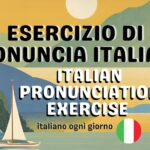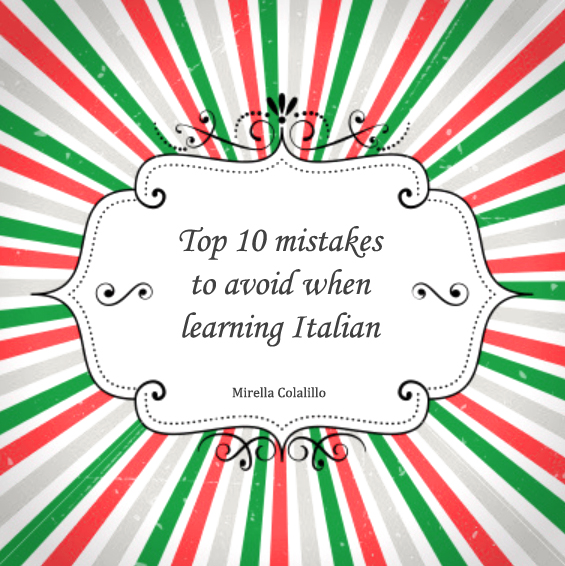I was inspired to write this handy little guide to help students improve the quality of their Italian learning practice. It is the fruit of my experience teaching Italian and English as a second language for over 10 years, and learning 4 languages during and after my bachelor’s degree in linguistics.
I’ve listed the 10 most common mistakes that I’ve noticed students make when they’re learning Italian. It might be the first time you’re exploring a second language, and you’re not sure what it entails, especially with a fascinating and complex language such as Italian. Perhaps you’ve been studying for a while and you feel that you are not advancing as much as you wish to. In this case, if any of the mistakes listed are true for you, then you’ll soon be back on track, as I’ve also added some tips to help you avoid or overcome il problema.
So whether you are starting from scratch or you need to refocus, I hope this guide encourages you to stay motivated and helps spark renewed passion in your viaggio della lingua italiana.
Non aspettare, don’t wait, subscribe to Una Parola Al Giorno newsletter by and you’ll receive the free e-book, “Top 10 Mistakes To Avoid When Learning Italian”.
Buono Studio!
Mirella
- Racconto italiano: La disdetta del frullato al cacao A2/B1

- Come si usa il gerundio

- Racconto italiano: La gatta sull’albero /A2

- Racconto italiano: Le scale al nuovo anno /B2

- 32 frasi ipotetiche del primo tipo in italiano

- Una rassegna: Cosa abbiamo studiato in italiano nel 2024?

- Racconto italiano: Un giorno perfettamente imperfetto /A2

- Racconto italiano: Le scale al nuovo anno /A1

- Esercizio di pronuncia italiana: 20 scioglilingua



Agree 100% with a statement about non native speaking teachers.
It’s not a good idea to have one unless you have no other choice.
First, non native teacher has an accent. It doesn’t matter how he/tries accent will always be there. So you learning a language spoken with accent. Second, it doesn’t matter how good of a teacher you are, if it’s not your native language you still make mistakes. I think that it’s especially important to have a native speaking teacher in initial stages of learning.
Also I would like to add that when hiring a teacher be sure he/she is a real teacher who went to school for it, not just a random person who wants to cash out only because he happen to know a foreign language
Ciao Yana,
Grazie per il messaggio!
I agree that you can find language “teachers” that didn’t study and don’t have a teaching background.
Native speakers are often better for pronunciation/accent and speed. So I highly recommend them, if you need to develop your listening skills. But you also have to be aware that some may have a local or regional accent and not the standard Italian accent. I’m bilingual English/Italian and I teach both. My first language is Italian but in my case English, both spoken and written, is excellent and I don’t have an Italian accent when I speak it. However, this came with a lot of hard work. When it comes to grammar, you find non-natives in any language that are often better than natives. If you ask an English mother-tongue the difference between much and many, I can assure you that many won’t be able to answer, although they are able to provide you with great conversational skills. It depends on what you are looking for. However, native or not, I recommend finding a teacher that is not only skilled but also genuine.
A presto,
Mirella